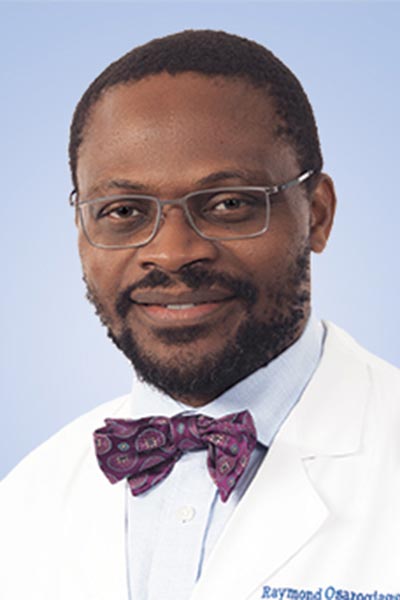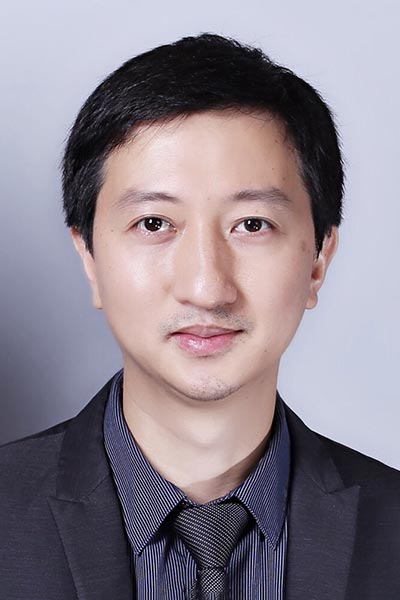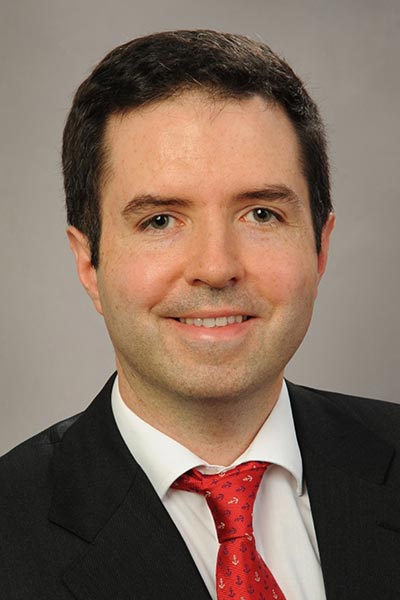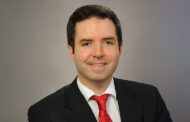
Each year at during the World Conference on Lung Cancer, IASLC presents awards to clinicians and researchers who made significant contributions to the treatment of patients with lung cancer. The awardees are invited to receive their awards and deliver a state-of-the-art lecture at the conference.
The WCLC 2022 program includes three Lectureship Awards sessions—one each a day Sunday, Monday, and Tuesday. The following awards and their associated lectures will be presented during Sunday’s Lectureship Awards session, which begins at 13:15 CEST in Hall C1 at the Messe Wein Exhibition & Congress Center. The session will also be available live and on-demand for virtual attendees.
IASLC Lectureship Award for Smoking Cessation and Tobacco Control
Honoree Raymond U. Osarogiagbon, MD, will present “Be Assured, the Dragon Is not Dead: Tobacco Control and the Lung Cancer Population Impact Pyramid.” In his lecture, Dr. Osarogiagbon will discuss smoking cessation and tobacco control within the context of systematic program-based approaches to reduce population-level lung cancer mortality, particularly in low- and middle-income countries.
Despite efforts in high-income countries to reduce the influence of tobacco companies by restricting their ability to market their products and by raising taxes on cigarettes, there remains grave danger for the global community as populations in low- and middle-income countries have seen deeper penetration of cigarette tobacco and other forms of tobacco, raising the threat of ongoing expansion of the tobacco and lung cancer epidemics,” he said.
It is estimated that tobacco caused 100 million deaths in the 20th century, mostly in high-income countries, and it is projected that it will cause 1 billion deaths, mostly in low- and middle-income countries, in the 21st century. The opportunity to reduce that number, Dr. Osarogiagbon said, by implementing effective tobacco control programs is too great to ignore.
“Policymakers and healthcare systems need to figure out innovative ways to promote effective tobacco control programs as a routine component of usual care delivery,” he said. “The advances in early detection and innovative treatment of lung cancer will count for naught if the global community does not effectively intervene to limit the global penetration of cigarettes and other forms of tobacco delivery, especially into low- and middle-income countries.”
Dr. Osarogiagbon is chief scientist at Baptist Memorial Health Care Corporation, and director of the Multidisciplinary Thoracic Oncology Program and the Thoracic Oncology Research Group at the Baptist Cancer Center, Memphis, Tennessee.

Lectureship Awards—Sunday
- Time: 13:15-14:15 CEST
- Date: Sunday, August 7
- Location: Hall C1, Live & On-Demand

Tsuguo Naruke Lectureship Award for Surgery
In his address to WCLC attendees, Wen-Zhao Zhong, MD, PhD, will discuss the latest surgical innovations and perioperative treatments for lung cancer and how a “zero-tolerance” strategy might be applied to the fight against lung cancer.
“Zero tolerance,” he said, was a policy published by the Chinese government to address the COVID-19 pandemic. It included controlling the source of infection; cutting off transmission routes; and protecting susceptible populations.
“In terms of cancer treatment, in order to cure lung cancer, we should control the localized disease, eliminate the micrometastases, and then protect those patients susceptible to recurrence with adjuvant and neoadjuvant therapies,” Dr. Zhong said.
His talk, titled “Zero Tolerance Strategy to Fight Lung Cancer” will emphasize “curative intent” and the concepts of “addition” and “subtraction” in perioperative management and determining the most effective treatment options.
“Psychological studies show that when people solve problems, we typically think about what we can add to make things better. We tend not to ask what we can take away,” Dr. Zhong said. “But sometimes, like building a house, subtracting, or removing something might make the whole design better. How we can use ‘subtraction’ in cancer treatment is an interesting creative question.”
Dr. Zhong is professor at Guangdong Provincial People’s Hospital and Guangdong Academy of Medical Sciences. He is the director of Guangdong Lung Cancer Institute, director of Lung Cancer Specialist Group of Chinese Society of Clinical Oncology (CSCO), vice-director of the Cancer Early Diagnosis and Treatment Group of Chinese Medical Association (CMA). Dr. Zhong is also a member of IASLC Education Committee.

Daniel C. Ihde Lectureship Award for Medical Oncology
Lastly, Patrick M. Forde, MBBCh, will present “The Evolution of Neoadjuvant Immunotherapy for Lung Cancer.”
Dr. Forde will discuss the potential advantages of neoadjuvant immunotherapy for surgically resectable lung cancer, including maximizing tumor recognition by the immune system, allowing evaluation of treatment response at the time of resection, and allowing for in-depth translational science analyses of resected tumors.
“After multiple encouraging phase 1 and phase 2 studies, the phase 3 CheckMate 816 trial in 2022 demonstrated dramatically improved pathological complete response and event-free survival results with positive surgical outcomes when anti-PD-1 immunotherapy was added to standard neoadjuvant chemotherapy,” Dr. Forde said. “Correlative analyses from earlier phase trials indicate sustained tumor recognition and surveillance by immune cells in patients treated with neoadjuvant immunotherapy.”
During his lecture, he will discuss the development of this therapy and exciting potential future directions in neoadjuvant therapy.
“Several other phase 3 trials have completed accrual with results awaited,” Dr. Forde said. “Exciting early phase neoadjuvant trials that explore novel agents are underway, and these are likely to lead to faster translation of new therapies, from metastatic lung cancer to earlier stage disease.”
Dr. Forde is a medical oncologist who treats patients with lung cancer, mesothelioma, and other thoracic cancers. He is co-director of the Division of Upper Aerodigestive Malignancies in the Department of Oncology at Johns Hopkins University, Baltimore, Maryland, where he directs the multidisciplinary Thoracic Oncology Clinical Research Program.





